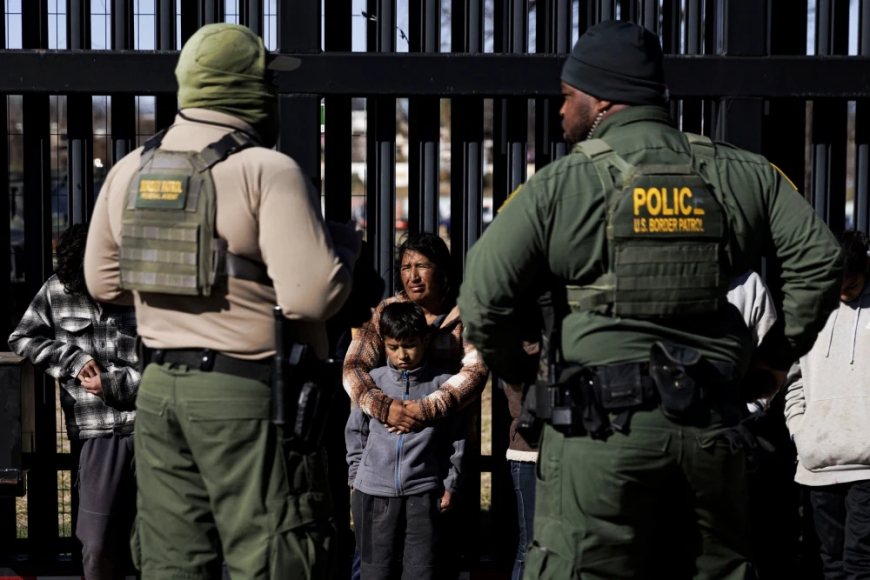Texas Emerges as the Blueprint for Trump’s Immigration Agenda
As Donald Trump prepares to re-enter the White House, Texas is positioning itself not as a bystander, but as a key architect of the immigration policies the President-elect promises to enforce. Under Governor Greg Abbott, the Lone Star State has transformed itself into a laboratory for hardline immigration measures, often at odds with federal authorities. Now, with a more sympathetic administration incoming, Texas appears ready to amplify its influence on a national stage.

Texas is positioning itself not as a spectator but rather as a major architect of the immigration policies the President-elect pledges to implement as Donald Trump gets ready to occupy the White House. Often at conflict with federal authorities, the Lone Star State has turned under Governor Greg Abbott into a laboratory for strict immigration policies. Texas now seems primed to magnify its impact on a national scene with a more friendly government about to arrive.
Texas has shown its autonomy over the past four years by building razor-wire fences, deploying the National Guard, and busing over 100,000 immigrants to Democratic state sanctuary cities. Abbott's framing of these acts as a required reaction to the Biden administration's alleged slowness has generated debate, swamped local governments, and stoked anti-immigrant feeling all around. Trump's coming back to the White House has turned this conflict into a chance for Texas to increase its influence.
One indication of Texas' preparedness to cooperate closely with federal authorities is the offer of a 1,402-acre property along the Rio Grande as a possible detention center. The state is also looking at additional public areas that might be used for deportation activities, essentially setting the foundation for Trump's desire to supervise the biggest deportation campaign in American history. With some already noted near El Paso and other metropolitan areas, Texas Land Commissioner Dawn Buckingham recently said the state is "actively looking at the properties" that could fit the demands of the administration.
The incoming Trump government has embraced this cooperation heartily. Former acting director of U.S. Immigration and Customs Enforcement (ICE), Tom Homan, the President-elect's assigned "border czar," lauded Texas' strategy as a national example. "You cannot have strong national security if you do not have border security," Homan said, stressing in line with the state's policies the need of rigorous border measures as a pillar.
At a joint ceremony with Homan, Abbott promised to "regain control of our border" and to speed efforts to find and deport illegal aliens, therefore upholding Texas' uncompromising posture. Though politically expeditious in some quarters, such rhetoric highlights the widening gulf between state and federal immigration policies.
Critics contend that Texas' strategies have purposefully caused anarchy. For example, the busing of immigrants to sanctuary towns has not only taxed urban centers like New York and Chicago but also generated animosity and anxiety that permeated the presidential campaign. Some analysts see these acts as a deliberate attempt to distribute the political and social load to Democratic strongholds, therefore highlighting the state's readiness to use human misery for political advantage.
Unprecedented challenge to federal immigration authority, Abbott's government has also passed divisive laws including S.B. 4, which permits state police to arrest immigrants and empowers state judges to order deportations Though they are now frozen in court, with a Trump Department of Justice less likely to oppose state-led immigration enforcement these policies could gain fresh impetus.
Texas's aspirations on size mirror the state's belief that, under Trump's direction, it can affect federal policy. This alignment, however, begs serious questions regarding the declining federal supervision in immigration issues. The consequences for national unity and international human rights responsibilities are significant if states like Texas are allowed freedom to determine deportation policies and border security practices.
For many, the scenario draws attention to the discrepancies of a federal system in which state-level projects lacking openness and responsibility can influence immigration, a typically federal territory. From mandated hospital searches on immigrant status to razor-wire installations along the border, Texas's actions under Abbott provide a taste of what could become accepted nationally under a Trump presidency.
Texas is preparing to lead the charge as Trump gets set to use federal resources fully in support of his immigration agenda. It remains a matter of debate whether this cooperation would produce the promised order and security or aggravate the political and humanitarian crises afflicting the U.S.-Mexico border for years. For now, Texas's strategy serves as a sobering reminder of the human cost of policies that give spectacle top priority over practicality.













































